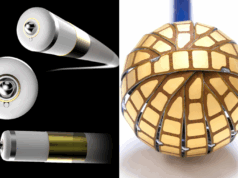The MADIT-RIT clinical trial, designed to determine which device programming strategy best minimises the occurrence of unnecessary therapy in patients who have received an implantable cardioverter defibrillator (ICD) or cardiac resynchronization therapy defibrillator (CRT-D) and have no history of cardiac arrest, has enrolled its first patients.
This new trial follows in the tradition of three previous landmark trials: MADIT, MADIT II and MADIT-CRT, each exclusively sponsored by Boston Scientific and conducted under the leadership of principal investigator Arthur J Moss, professor of Medicine at the University of Rochester, US.
Unnecessary therapy has a significant impact on quality of life, especially for patients with no history of cardiac arrest. The MADIT-RIT trial will try to answer which programming strategy best minimises the occurrence of unnecessary therapy in ICD and CRT patients without history of cardiac arrest. MADIT-RIT is a prospective, randomised study that will enrol 1,500 patients at approximately 75 centres globally.
The first enrolments in this worldwide trial occurred last month in Graz, Austria at the Medizinische Universitatsklinik Graz (Burkert M Pieske, and Daniel Scherr); Basel, Switzerland at the Universitatsspital Basel (Beat Schaer, and Christian Sticherling); Detroit, Michigan at the St John Hospital and Medical Center (Luis Pires); and Little Rock, Arkansas at Arkansas Cardiology (Steven Greer).
“Clinical science has proved time and again that ICDs are highly effective in reducing death due to arrhythmias in high-risk cardiac patients,” said Moss. “However, some patients receive unnecessary therapy, partly due to the programming of these devices at implant. MADIT-RIT will study the effects of programming on the occurrence of unnecessary therapy in these patients.”









